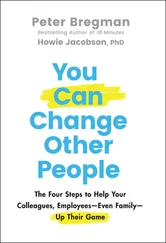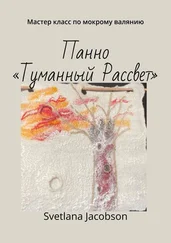‘I can’t imagine her signing what she hadn’t done,’ Kevern continued. ‘Nor can I think of who else could have done them.’
‘You?’
‘Why would I be passing them off as hers?’
Zermansky scratched his head. Good question.
They were standing in Zermansky’s studio, on his easel the beginnings of another golden sun setting like liquid gold behind St Mordechai’s Mount. ‘I am perhaps the wrong person to ask,’ he said, nodding at the unfinished painting and laughing uncomfortably.
‘You must be able to  udge the quality of work even when it’s unlike your own,’ Kevern said. ‘Your students’ work, for example.’
udge the quality of work even when it’s unlike your own,’ Kevern said. ‘Your students’ work, for example.’
‘Oh, if any of my students were to do what your mother did. .’
His voice trailed off.
‘What?’
‘Well, they just wouldn’t. Couldn’t.’
‘Are you saying what my mother did would be beyond them?’
‘Not beyond them technically. Not beyond the best of them technically, anyway. But beyond them — how can I best put this — emotionally and volitionally. They wouldn’t know where in themselves to find such thoughts. And it wouldn’t occur to them to try. Why would it?’
‘Why wouldn’t it?’
‘Because that isn’t how we see any more. To be frank with you, Kevern, that isn’t how I’d like them to see any more.’
‘That sounds prescriptive, Everett.’
‘No. I don’t mean it to. I don’t run a dictatorship of the arts here. My students paint what they feel. But some things are no longer felt, and I am glad of that.’
‘What is it that my mother felt that you are glad your students don’t?’
‘Kevern, I never knew your mother.’
‘Neither, it seems, did I. But we aren’t talking about her personally, are we. What is it in the work—’
‘Kevern, look. I don’t know when your mother did these. But they are of another time. Art has changed. We have returned to the primordial celebration of the loveliness of the natural world. You can see there is none of that in what your mother did. See how fractured her images are. There is no harmony here. The colours are brutal — forgive me, but you have asked me and I must tell you. I feel jittery just turning the pages. Even the human body, that most beautiful of forms, is made jagged and frightful. The human eye cannot rest for long on these, Kevern. There is too much mind here. They are disruptive of the peace we go to art to find.’
‘You make me proud of her.’
Zermansky took a moment to process a thought. Like mother, like son — I bet she too had difficulty apologising .
But he was quick to reassure Kevern of his motives. ‘Good,’ he said, ‘because it’s not my aim to make you ashamed of her. She was certainly gifted — primitively gifted, I’d say, in the way that a particular period of art was cerebral and primitive at the same time — but not every gift needs to see the light of day.’
‘I wasn’t proposing to mount an exhibition of her work.’
‘Excellent, excellent. You enjoy looking at them, that’s sufficient. I’d keep them as something between you and her.’
‘Keep them hidden, is what you’re saying?’
Zermansky made a pair of scales with his hands, weighing ‘hiding’ against. . well, whatever he was weighing it against. Keeping them as something between a son and his mother .
Kevern was irked and puzzled. ‘Anyone would think,’ he said, ‘that these little sketches could get me into trouble.’
Professor Edward Everett Phineas Zermansky threw him a weak smile. For the first time he understood to a certainty why he’d been asked to keep an eye on Kevern ‘Coco’ Cohen.
v
Coira grew up in St Brigid’s Convent and Orphanage, ignorant of how she’d got there and knowing nothing of her mother and father. It was thought by many of the nuns that she had the ideal temperament to be a nun herself. She loved the ceremonials of the place — the sweet companionship, the daily round of repeated activity, the quiet of the church, the statuary, the incense, the music, the rhapsody. Convent orphanages were good for this. Over the years, as in many countries that had seen civil strife, children of other, not to say competing, faiths were secreted with the nuns of St Brigid’s and countless convents like it, and there, without theological turbulence, willingly embraced beliefs alien to their own — that’s when they knew what their own were. Occasionally some were delivered into the care of the nuns at an advanced enough age to notice the difference between the rituals of worship here and at home, but practised a gentle and compliant apostasy, relieved to be somewhere peaceful, away from rage and oppression, and grateful to feel accepted into a community. It could be confusing sometimes: the kind consideration they encountered from the nuns contrasting with the violence of the sermons to which they were subjected, in which many couldn’t fail to recognise themselves as the children of Satan, doomed to be swallowed by the fires of hell for all eternity. But at least in St Brigid’s no one tried to beat the wickedness out of those orphans who had been born into evil — the worst they did was to pray for their deliverance — and in Coira’s case they had no knowledge of what she had been born into anyway. Whether she would finally take vows herself she wasn’t sure, but she worked contentedly with the nuns she loved in a lay capacity until her sixteenth birthday when, with understandable reluctance, they handed over the letters her mother had left her. She locked herself away with them for many weeks, asked questions to which no one had an answer, requested the key for the convent library but found nothing there that helped shed light on why she had been abandoned, or what had happened to her mother or her grandparents. Her father she traced to his island parish, but decided, on the strength of sitting unknown through a sermon he gave on the subject of family love, that she had nothing to love him for. As she understood it, he had been instrumental in having her baptised and since, had she not been baptised, her mother would never have deposited her like unwanted luggage, he alone bore the blame. She had the wrong end of the stick, but her mistake was perfectly explicable. There was no one at the convent orphanage able to explain the ins and outs of matrilineality to her.
It was only after this that she became difficult to control, suffering bouts of anger and depression, making unconvincing attempts to end her life, resorting to petty thieving, staying away for days at a time and sleeping with local boys. Her natural sweetness of temper always won the nuns round in the end, however, and no moral disaster ensued. Soon she was back to her old self, not quite as cheerful as before, and no longer talking of taking vows, but reconciled, it seemed, to a life of only occasionally fractious usefulness. But in her thirty-ninth year, just as her hair began to turn grey and her existence seemed to be moving into a blessedly placid phase, she fell pregnant with a child whose father she either wouldn’t or couldn’t name. The nuns didn’t judge her. Some felt that her failings were their failings, others that her mother’s sins, whatever they had been, were bound to be visited on her in the end. She went away to have the baby and then returned with it, one early morning, as her gift to the nuns. They found the bundled child before morning prayers, in a basket outside the chapel with an identifying label tied around her wrist. This, Sister Agatha, who was old enough to remember the depositing of Coira herself, took to be a bitterly ironic reference to that event, a perpetuation of rejection. A bundle of letters tied with pink ribbon was in the basket together with a note asking that they keep them for the girl and give them to her only in the event of her asking for them, but whatever happened no earlier than her twenty-fifth birthday.
Читать дальше

 udge the quality of work even when it’s unlike your own,’ Kevern said. ‘Your students’ work, for example.’
udge the quality of work even when it’s unlike your own,’ Kevern said. ‘Your students’ work, for example.’










